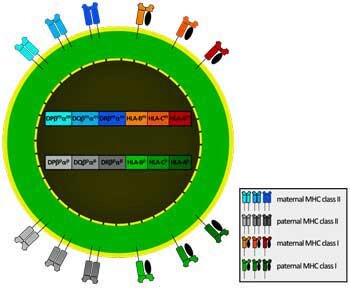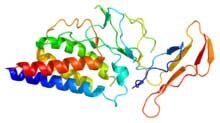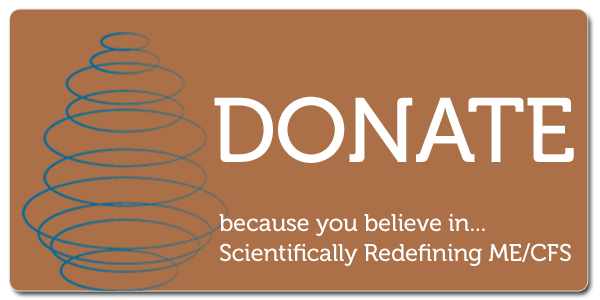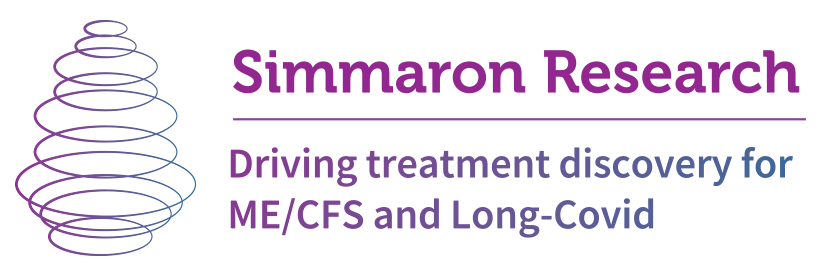System Reset? Study Suggests Pro-Inflammatory / Autoimmune Reset Occurred in Chronic Fatigue Syndrome (ME/CFS)
Epigenetics research holds the fascinating possibility of figuring out what shifted at the very beginning of chronic fatigue syndrome (ME/CFS). For many with ME/CFS a sudden change occurred - some sort of biological reset quickly happened - which never relinquished itself. Finding out what "reset" occurred is what epigenetics is all about. Epigenetics identifies changes in the expression of our genes that occur after we meetup with biological stressors such as pathogens, drug, toxin or even foods.Most of our genes that produce proinflammatory cytokines, for instance, have a kind of a lock on them. Removing that lock leaves them free to express themselves and leaves us open to poor health.Epigenetics explores how the biological challenges we encounter in life can remove those locks (or add to them) resulting in an entirely new genetic landscape - one that could perhaps cause something like ME/CFS.Many people's ME/CFS/FM starts with an infection, and viruses can exert major epigenetic changes to our genome. Herpes simplex virus (the virus Dr. Pridgen is targeting in fibromyalgia) engineers changes to our genome which help the virus avoid destruction and enhance its replication. Those changes include a suppression of our immune system, which can result in an increased risk of cancer.What goes around comes around, though. Epigenetic News recently reported that an epigenetic modifying cancer drug was able to return the parts of the immune system that the herpes simplex virus had disturbed to normal. The drug was able to effectively fill in the immune hole created by the herpes virus by boosting a number of immune factors (IFN-a, IL-8, IL-6, transcription factors, stress response factors). Mouse studies revealed that the drug also reduced reactivation of the virus.That suggests that some similar drugs now in clinical trials could help in the fight against herpes and other viruses or could perhaps simply return to normal epigenetically modified genes that have suppressed immune functioning.
Finding out what "reset" occurred is what epigenetics is all about. Epigenetics identifies changes in the expression of our genes that occur after we meetup with biological stressors such as pathogens, drug, toxin or even foods.Most of our genes that produce proinflammatory cytokines, for instance, have a kind of a lock on them. Removing that lock leaves them free to express themselves and leaves us open to poor health.Epigenetics explores how the biological challenges we encounter in life can remove those locks (or add to them) resulting in an entirely new genetic landscape - one that could perhaps cause something like ME/CFS.Many people's ME/CFS/FM starts with an infection, and viruses can exert major epigenetic changes to our genome. Herpes simplex virus (the virus Dr. Pridgen is targeting in fibromyalgia) engineers changes to our genome which help the virus avoid destruction and enhance its replication. Those changes include a suppression of our immune system, which can result in an increased risk of cancer.What goes around comes around, though. Epigenetic News recently reported that an epigenetic modifying cancer drug was able to return the parts of the immune system that the herpes simplex virus had disturbed to normal. The drug was able to effectively fill in the immune hole created by the herpes virus by boosting a number of immune factors (IFN-a, IL-8, IL-6, transcription factors, stress response factors). Mouse studies revealed that the drug also reduced reactivation of the virus.That suggests that some similar drugs now in clinical trials could help in the fight against herpes and other viruses or could perhaps simply return to normal epigenetically modified genes that have suppressed immune functioning.
"A new class of antivirals based on this study might be useful for patients who are resistant to existing antivirals like acyclovir and ganciclovir….. (or in) viral infections for which there aren't pharmaceuticals to boost an individual's immune response." Dr Kristie
If epigenetics turns out to play the major role in ME/CFS that it does in cancer and other diseases, a cancer drug could someday be in store for ME/CFS treatment.
Epigenetics Study Highlights Immune Alterations in ME/CFS
The epigenetics story begins with gene transcription - the first step in the process of translating our genes into proteins. Gene expression gets enabled by the removal of methyl groups that block transcription and/or by the addition of methyl groups that stop genes from being expressed.Malay Trivedi and Lubov Nathanson at Dr. Klimas's Institute of Neuroimmune Research at Nova Southeastern University recently published the most comprehensive study yet on epigenetics in chronic fatigue syndrome .Just a few epigenetic studies have been done in ME/CFS and none like this one. For one, the group took advantage of a new breakthrough in genetic testing (an advanced Illumina array) to almost double the number of testing sites (from 450,000 to 850,000 sites). For another, the larger sample size (64 participants from two geographically distant locations) ensured a more comprehensive look at the epigenetic changes in ME/CFS. This allowed the group to produce what they called "consensus hypomethylated sites" they believe could be used in future studies.The general findings of the study agreed with those from past ME/CFS epigenetic studies. Hypomethylation - the deletion of methyl groups, which make it easier for the genes to be expressed - was the theme, with 98% of differentially methylated sites in ME/CFS hypomethylated compared to controls. (Only 2% were hypermethylated compared to controls.) The hypomethylation was most prominent in genes associated with immune cell regulation.The high degree of hypomethylation was intriguing for several reasons. For one, Epstein-Barr Virus - presumably a common trigger in ME/CFS - overwhelmingly triggers hypomethylation and almost no hypermethylation of genes. Hypomethylation is also associated with pro-inflammatory gene expression in autoimmune diseases as well as in cancer promotion.
Multiple Sclerosis Breakthrough
A "global" hypomethylation, for instance, is also found in lupus and rheumatoid arthritis. The hypomethylation of a promoter gene for IL-6 in rheumatoid arthritis causes an overexpression of pro-inflammatory cytokines and other immune factors which ultimately results in joint damage. The recently uncovered hypomethylation of an HLA gene in multiple sclerosis (MS) prompted researchers to state that epigenetic changes may even be "caus(ing) the disease". That bold statement reflected the findings of a recent large study, which indicated that epigenetic changes were directly causing the largest risk factor found yet for MS.That finding may have implications that go far beyond MS and could conceivably reach ME/CFS/FM. Since the HLA region of the genome is associated with almost all autoimmune diseases, the authors believe their finding will impact other autoimmune diseases.(Several years ago Ron Davis pegged the HLA region as a potential study area for ME/CFS. His Stanford Genome Lab has developed new methods of assessing this complex region of our genome, and he and Mike Snyder at Stanford are doing an intensive analysis of that HLA region in ME/CFS.)
The recently uncovered hypomethylation of an HLA gene in multiple sclerosis (MS) prompted researchers to state that epigenetic changes may even be "caus(ing) the disease". That bold statement reflected the findings of a recent large study, which indicated that epigenetic changes were directly causing the largest risk factor found yet for MS.That finding may have implications that go far beyond MS and could conceivably reach ME/CFS/FM. Since the HLA region of the genome is associated with almost all autoimmune diseases, the authors believe their finding will impact other autoimmune diseases.(Several years ago Ron Davis pegged the HLA region as a potential study area for ME/CFS. His Stanford Genome Lab has developed new methods of assessing this complex region of our genome, and he and Mike Snyder at Stanford are doing an intensive analysis of that HLA region in ME/CFS.)
Back to Chronic Fatigue Syndrome (ME/CFS)
The highest degree of hypomethylation in a genetic region in ME/CFS occurred in gene promoters associated with natural killer cell functioning, no less - the most consistent finding in ME/CFS. That suggested that some sort of epigenetic reset - perhaps triggered by an infection - occurred in the NK cells of ME/CFS patients.With regard to single genes, the authors highlighted the hypomethylation of genes associated with muscle hypotonia (low muscle tone) and cognitive impairment (MED13L), problems with protein synthesis (metabolism), and glucocorticoids (SGK3 gene - inflammation).It was the immune genes, though, where the hypomethylation really came to the fore. Immune genes that regulate the adaptive immune response (T & B cells) and the production of immunoglobulins were hypomethylated. The authors asserted that those findings were in sync with reports of improvement from Rituximab.Promoters (MMP14, MAP4K4, MAPK12 and CREB5), which may be activating tumor necrosis factor signaling pathways and thus contributing to the pro-inflammatory problems believed present in ME/CFS, were hypomethylated as well.A gene (miRNA-148a) that impairs the innate immune response was also hypomethylated. Several of the hypomethylated genes were also found in prior ME/CFS studies.Then there's the IL21R gene. The hypomethylation of the IL21R gene promoter in ME/CFS could promote inflammation, autoimmunity, thyroid disease, intestinal inflammation, and others. IL-21 also plays a critical role in triggering spontaneous experimental autoimmune encephalomyelitis - an animal model of brain inflammation.
Conclusion
 Epigenetics is a relatively new science which is already proving to be a boon to the study of autoimmunity and cancer. Larger studies will be needed in ME/CFS for epigenetics to reach its potential, but the study from Dr. Klimas's group suggested that, just as in some autoimmune diseases, enhanced hypomethylation may be increasing the expression of genes which promote inflammation and autoimmunity in ME/CFS.The most encouraging thing about epigenetics is the possibility of reversing the epigenetic changes a pathogen, toxin or drug has caused. Much more study is needed to isolate any epigenetic culprits in ME/CFS, but epigenetic altering drugs are being developed for other diseases. One intriguing drug seeks to reverse the epigenetic changes caused by herpes simplex virus - thus returning the immune system to normal. Another breakthrough suggests that epigenetic changes may be major drivers of multiple sclerosis.This is clearly a field to keep an eye on.
Epigenetics is a relatively new science which is already proving to be a boon to the study of autoimmunity and cancer. Larger studies will be needed in ME/CFS for epigenetics to reach its potential, but the study from Dr. Klimas's group suggested that, just as in some autoimmune diseases, enhanced hypomethylation may be increasing the expression of genes which promote inflammation and autoimmunity in ME/CFS.The most encouraging thing about epigenetics is the possibility of reversing the epigenetic changes a pathogen, toxin or drug has caused. Much more study is needed to isolate any epigenetic culprits in ME/CFS, but epigenetic altering drugs are being developed for other diseases. One intriguing drug seeks to reverse the epigenetic changes caused by herpes simplex virus - thus returning the immune system to normal. Another breakthrough suggests that epigenetic changes may be major drivers of multiple sclerosis.This is clearly a field to keep an eye on.
